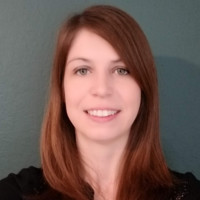
Stephanie R. Coffman
- Courses1
- Reviews1
- School: West Hills Community College
- Campus:
- Department: Biology
- Email address: Join to see
- Phone: Join to see
-
Location:
555 College Ave
Lemoore, CA - 93245 - Dates at West Hills Community College: December 2017 - December 2017
- Office Hours: Join to see
Biography
West Hills Community College - Biology
Experience
California State University, Fresno
Lecturer
Intro to Biology for Science Majors
Lab and TA coordinator Intro to Biology for Majors
Life Sciences
Genetics
Anatomy and Physiology LabUniversity of California, Riverside
Graduate Student Researcher
Stephanie worked at University of California, Riverside as a Graduate Student Researcher
University of California, Riverside
Teaching Assistant
Molecular Biology Discussion
Introduction to Cell and Molecular Biology LaboratoryClovis Community College
Adjunct Biology Instructor
Introduction to Life Sciences
Intro to Biology for Science Majors
Human Biology
Human Physiology Lab
Graduate Writing Resource Center
Graduate Writing Center Consultant
Stephanie worked at Graduate Writing Resource Center as a Graduate Writing Center Consultant
Integrative Institue for Genome Biology
Student Seminar Coordinator
Stephanie worked at Integrative Institue for Genome Biology as a Student Seminar Coordinator
Education
California State University, Fresno
Bachelor of Science (B.S.)
Molecular, Cellular and Developmental Biology
California State University, Fresno
Lecturer
Intro to Biology for Science Majors Lab and TA coordinator Intro to Biology for Majors Life Sciences Genetics Anatomy and Physiology LabUniversity of California, Riverside
Doctor of Philosophy (PhD)
Genetics, Genomics and Bioinformatics
University of California, Riverside
Graduate Student Researcher
University of California, Riverside
Teaching Assistant
Molecular Biology Discussion Introduction to Cell and Molecular Biology Laboratory
Publications
The Shift in the Intestinal Microbiome in the Innate Immunity-Deficient Mutant rde-1 Strain of C. elegans upon Orsay Virus Infection
Frontiers in Microbiology
The status of intestinal microbiota is a determinant of host health. However, the alteration of the gut microbiota caused by the innate immune response to virus infection is unclear. Caenorhabditis elegans and its natural virus Orsay provide an excellent model of host-virus interactions. We evaluated the intestinal microbial community complexity of the wild-type N2 and the innate immunity-deficient mutant rde-1 (ne219) strains of C. elegans upon Orsay virus infection. The gut microbiota diversity was decreased in rde-1 (ne219) mutant animals, and a large number of genes were associated with the difference between infected and uninfected rde-1 (ne219) mutant animals. Therefore, this study provides the first evaluation of the alterations caused by Orsay virus on intestinal microbiota in wildtype and innate immunity-deficient animals using C. elegans as the model species. Our findings indicate that virus infection may alters the microbiome in animals with defective immune response.
The Shift in the Intestinal Microbiome in the Innate Immunity-Deficient Mutant rde-1 Strain of C. elegans upon Orsay Virus Infection
Frontiers in Microbiology
The status of intestinal microbiota is a determinant of host health. However, the alteration of the gut microbiota caused by the innate immune response to virus infection is unclear. Caenorhabditis elegans and its natural virus Orsay provide an excellent model of host-virus interactions. We evaluated the intestinal microbial community complexity of the wild-type N2 and the innate immunity-deficient mutant rde-1 (ne219) strains of C. elegans upon Orsay virus infection. The gut microbiota diversity was decreased in rde-1 (ne219) mutant animals, and a large number of genes were associated with the difference between infected and uninfected rde-1 (ne219) mutant animals. Therefore, this study provides the first evaluation of the alterations caused by Orsay virus on intestinal microbiota in wildtype and innate immunity-deficient animals using C. elegans as the model species. Our findings indicate that virus infection may alters the microbiome in animals with defective immune response.
Caenorhabditis elegans RIG-I Homolog Mediates Antiviral RNA Interference Downstream of Dicer-Dependent Biogenesis of Viral Small Interfering RNAs.
MBio
Dicer enzymes process virus-specific double-stranded RNA (dsRNA) into small interfering RNAs (siRNAs) to initiate specific antiviral defense by related RNA interference (RNAi) pathways in plants, insects, nematodes, and mammals. Antiviral RNAi in Caenorhabditis elegans requires Dicer-related helicase 1 (DRH-1), not found in plants and insects but highly homologous to mammalian retinoic acid-inducible gene I (RIG-I)-like receptors (RLRs), intracellular viral RNA sensors that trigger innate immunity against RNA virus infection. However, it remains unclear if DRH-1 acts analogously to initiate antiviral RNAi in C. elegans. Here, we performed a forward genetic screen to characterize antiviral RNAi in C. elegans. Using a mapping-by-sequencing strategy, we uncovered four loss-of-function alleles of drh-1, three of which caused mutations in the helicase and C-terminal domains conserved in RLRs. Deep sequencing of small RNAs revealed an abundant population of Dicer-dependent virus-derived small interfering RNAs (vsiRNAs) in drh-1 single and double mutant animals after infection with Orsay virus, a positive-strand RNA virus. These findings provide further genetic evidence for the antiviral function of DRH-1 and illustrate that DRH-1 is not essential for the sensing and Dicer-mediated processing of the viral dsRNA replicative intermediates. Interestingly, vsiRNAs produced by drh-1 mutants were mapped overwhelmingly to the terminal regions of the viral genomic RNAs, in contrast to random distribution of vsiRNA hot spots when DRH-1 is functional. As RIG-I translocates on long dsRNA and DRH-1 exists in a complex with Dicer, we propose that DRH-1 facilitates the biogenesis of vsiRNAs in nematodes by catalyzing translocation of the Dicer complex on the viral long dsRNA precursors.
Possible Matching Profiles
The following profiles may or may not be the same professor:
- Stephanie Coffman
Clovis Community College - Biology
Possible Matching Profiles
The following profiles may or may not be the same professor:
- Stephanie R Coffman (60% Match)
Lecturer
California State University - California State University - Stephanie R Coffman (60% Match)
Adjunct Lab Instructor
State Center Community College District - State Center Community College District
